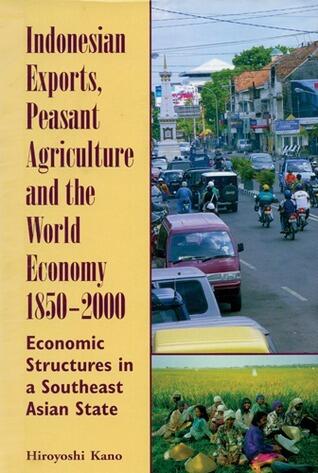
Indonesian Exports, Peasant Agriculture, and the World Economy, 1850-2000: Economic Structures in a Southeast Asian State (Volume 118)
によって
Hiroyoshi Kanō
まだ評価がありません
Business & Economics
形式
ペーパーバック
ページ数
442
言語
英語
公開されました
Mar 10, 2009
出版社
Ohio University Press
ISBN-10
089680268X
ISBN-13
9780896802681
説明
Hiroyoshi Kanō explores the intricate relationship between Indonesian exports, peasant agriculture, and the global economy from 1850 to 2000. This examination highlights how colonial influences and subsequent national developments shaped economic structures in Indonesia. The narrative not only traces the evolution of agricultural practices among local peasants, but also delves into their integral role in supporting export-driven growth.
Through meticulous research, Kanō sheds light on the complexities of the Indonesian economic landscape, revealing how international demands and local agricultural practices intertwined. The book emphasizes the impact of historical events and policies on farmers, showcasing their resilience and adaptation amidst changing economic paradigms.
This work stands as a significant contribution to understanding the historical underpinnings of contemporary Indonesian society, offering insights into how past economic models continue to influence the nation's position in the global market today. Kanō's analysis provides both a scholarly perspective and an engaging narrative that highlights the critical role of agriculture in shaping national identity and economic trajectories in Southeast Asia.
Through meticulous research, Kanō sheds light on the complexities of the Indonesian economic landscape, revealing how international demands and local agricultural practices intertwined. The book emphasizes the impact of historical events and policies on farmers, showcasing their resilience and adaptation amidst changing economic paradigms.
This work stands as a significant contribution to understanding the historical underpinnings of contemporary Indonesian society, offering insights into how past economic models continue to influence the nation's position in the global market today. Kanō's analysis provides both a scholarly perspective and an engaging narrative that highlights the critical role of agriculture in shaping national identity and economic trajectories in Southeast Asia.